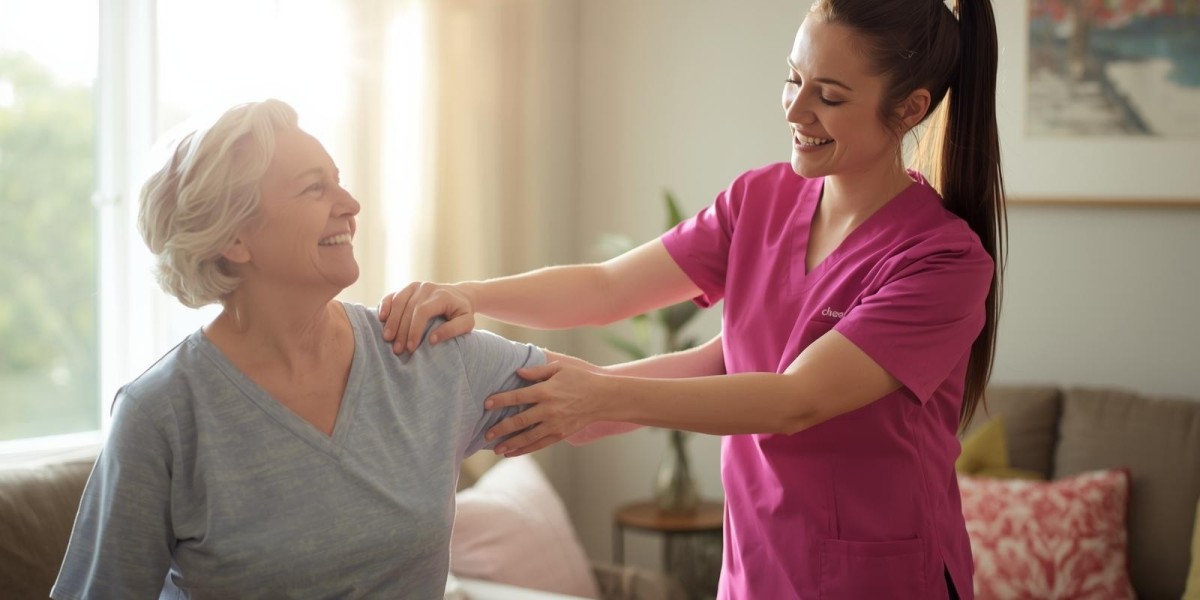Aging brings challenges that can make everyday tasks more difficult. These challenges can impact a senior’s safety and quality of life. In-home senior care offers the right support while allowing older adults to remain in a familiar environment.
The need for senior care is growing as life expectancy increases. Nearly 70% of adults aged 65 and older are likely to need long-term care at some point. As more families navigate caregiving decisions, recognizing early signs of decline is important.
Knowing when a parent needs extra help can prevent accidents, health issues, and emotional distress. This article highlights key indicators that suggest it may be time to consider in-home care from a home healthcare provider like Nurse Next Door McLean.
Decline in Personal Hygiene and Grooming
Neglecting personal hygiene is often a sign that an aging parent needs assistance. Wearing dirty clothes, skipping baths, or having unkempt hair may indicate struggles with self-care. These changes can result from mobility issues or a lack of energy due to underlying health conditions.
Poor hygiene can lead to infections and skin problems. Seniors with cognitive decline may forget to bathe, brush their teeth, or change their clothes. Joint pain or weakness can also make tasks like combing hair or trimming nails difficult.
Elder care at home provides essential support with grooming while maintaining a senior’s dignity. They assist with bathing, dressing, and other hygiene routines to ensure safety and overall well-being.
Difficulty Managing Daily Activities
Difficulty in managing daily activities is a common sign that a senior may need extra support. Tasks like cooking, cleaning, and handling medications can become overwhelming. Some may leave household chores unfinished, forget doses, or struggle with meal preparation.
Limited mobility or cognitive decline can make even simple tasks exhausting. Some seniors may avoid cooking due to the risk of burns or falls in the kitchen. Others may wear the same clothes for days because dressing has become challenging.
In-home senior care provides essential support with daily routines and promotes independence. They assist with meal preparation, household tasks, and medication reminders to ensure seniors maintain a safe and comfortable lifestyle at home.
Memory Lapses and Cognitive Decline
Forgetting appointments, misplacing items, or struggling to recall recent conversations are causes of cognitive decline. Occasional forgetfulness is normal with age, but frequent memory lapses may indicate a deeper issue. Seniors experiencing confusion or disorientation might forget to turn off appliances or have trouble recognizing familiar places.
A senior may forget to pay bills, take medications on time, or remember important tasks. In some cases, they might ask the same questions repeatedly or lose track of time. These challenges show that your loved one needs in-home senior care.
Caregivers provide gentle reminders, help seniors stay organized, manage medications, and assist with daily tasks to ensure a sense of stability and security.
Changes in Physical Health and Mobility
Physical health changes can make daily activities more difficult. Seniors may struggle with balance, experience frequent falls, or have difficulty walking. Weakness and joint pain can limit mobility and restrict them from moving around the house.
Unexplained bruises or injuries may indicate falls that were not reported. Trouble getting in and out of bed, climbing stairs, or standing for long periods can also be signs of declining strength. These challenges increase the risk of serious injuries.
Elder care at home assists with mobility and ensures a safer environment. They provide support with walking, transfers, and daily movements to help seniors stay active while reducing the risk of falls and accidents.
Social Isolation and Withdrawal
Seniors who withdraw from social activities may need extra support. Avoiding friends, skipping family gatherings, or losing interest in hobbies can signal loneliness or depression. Isolation can lead to mental health decline, and seniors feel disconnected from the world around them.
Aging adults may stop engaging due to hearing loss or lack of energy. They may struggle with transportation to visit loved ones or attend events. Over time, this isolation can affect their mood and well-being.
Elder care at home provides companionship and emotional support. They encourage social interaction and engage seniors in meaningful activities. Regular interaction can create a sense of belonging.
Explore Nurse Next Door McLean’s Services
Aging parents deserve care that keeps them safe, comfortable, and happy at home. Nurse Next Door McLean provides personalized in-home care tailored to individual needs. Their caregivers assist with personal hygiene, various Activities of Daily Living (ADLs), meal preparation, medication reminders, and emotional support. Whether seniors need occasional help or 24/7 care, their services adapt to different levels of support.
Choosing professional care can improve a loved one’s quality of life.
Conclusion
Recognizing the signs that an aging parent needs help is important for their well-being. Changes in hygiene, difficulty with daily tasks, memory lapses, and social withdrawal can indicate the need for in-home care. Addressing these challenges early ensures that they stay safe and comfortable at home.
Professional caregivers provide the support seniors need while preserving their independence. If a loved one is showing these signs, contact Nurse Next Door McLean now to improve their quality of life and give them the care they deserve.







